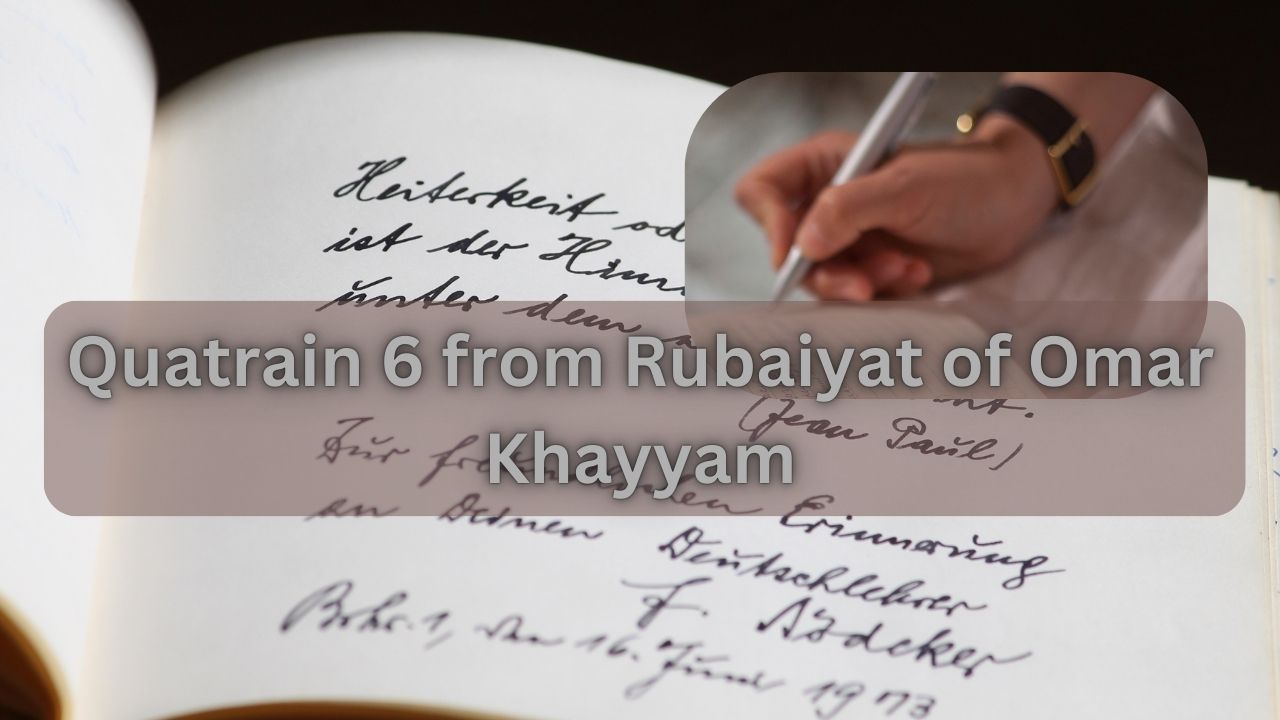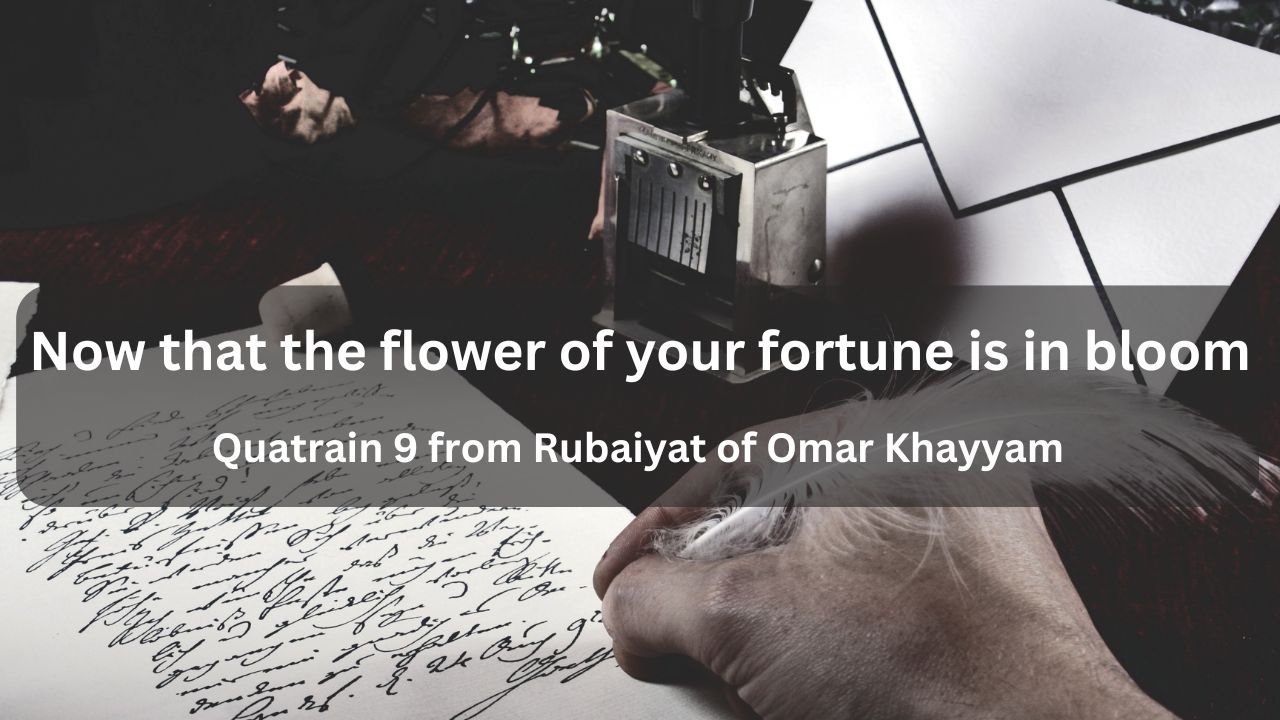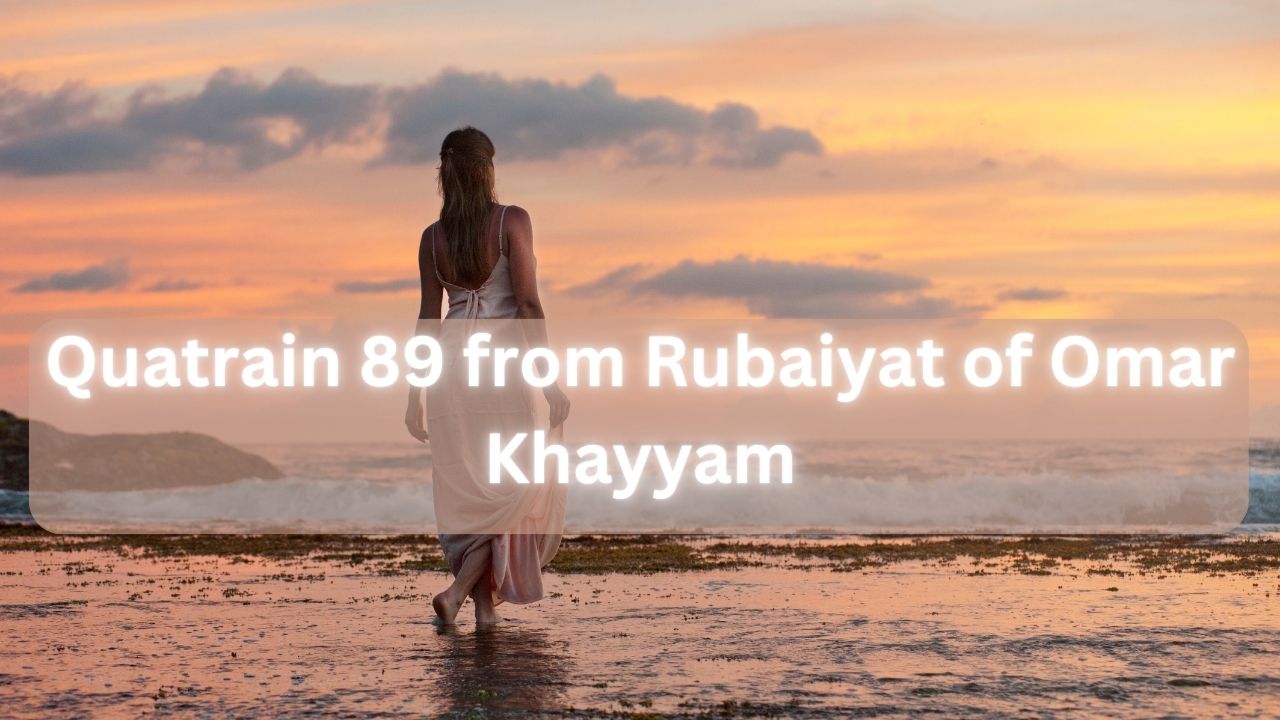Quatrain 6 from Rubaiyat of Omar Khayyam is one of the most famous Robaei from him. I encourage you to be with me till the end and also write your opinion in the comments.
مائیم و می و مطرب و این کنج خراب
جان دل و جام و جامه پر دُرد شراب
فارغ ز امید رحمت و بیم عذاب
آزاد ز خاک و باد و از آتش و آب
A Note on the Presented Rubai
The rubai presented here is one of the most famous and often quoted works of Omar Khayyam. It encapsulates many of the recurring themes in his poetry: the transience of life, the pleasures of the moment, and the indifference of the universe. In this poem Khayyam says that despite the difficulty in this broken world, we still have things that is more than enough for living with joy: our companionship, wine, and music.
English Translations
Here are a few English translations of this rubaei, each offering a slightly different nuance and poetic style:
A more literal translation
We are, and wine, and music, and this ruined corner,
A soul, and a cup, and garments stained with wine.
Free from hope of mercy and fear of torment,
Freed from earth, and wind, and fire, and water.
A more poetic and interpretive translation
We, wine, and music, in this crumbling place,
A soul, a cup, stained by wine's embrace.
Beyond hope's embrace or fear's cold hand,
Free as the wind, unbound by land or sand.
A more contemporary and informal translation
It's just us, wine, music, and this broken room,
A soul, a cup, filled with wine's bitter gloom.
No heaven, no hell, no fear, no hope,
Just us, adrift, on life's endless slope.
Understanding the Rubai
• "مائیم و می و مطرب و این کنج خراب": This line sets the scene of companionship, somewhat desolate existence, filled with the simple pleasures of wine and music. Here Khayyam insists that in this retched world we are enjoying ourself with wine and music and companionship.
• "جان دل و جام و جامه پر دُرد شراب": Here, the soul (جان) is intertwined with the cup (جام) and the garments stained with cheap wine or DORD, suggesting a deep connection between the individual and these worldly pleasures. In Persian mysticism Dordkeshan are people who love wine but could not afford buying good quality wine, so they drink Dord, which is cheap wine. It means that even though they may be poor but they try their best to enjoy their lifves.
• "فارغ ز امید رحمت و بیم عذاب": This line indicates a detachment from religious beliefs and the associated hopes and fears. He says we don’t live neither based on hope of mercy nor fear of torment in afterlife.
• "آزاد ز خاک و باد و از آتش و آب": This final line emphasizes a sense of freedom from the elements and the physical world, suggesting a more spiritual or philosophical detachment. It also shows that they don’t rely on earthly riches in their life, because those too, can actually enslave us.
Themes and Interpretations
This rubai has been interpreted in various ways over the centuries. Some common themes include:
• Carpe diem: The emphasis on enjoying the present moment and seeking pleasure is a classic carpe diem theme.
• Skepticism: The lines about being free from hope and fear suggest a skeptical or agnostic outlook on life.
• Materialism vs. spirituality: There is a tension between the material pleasures (wine, music) and the spiritual longing (the soul) in this verse.
• The transience of life: The image of a ruined corner and the reference to the elements emphasize the impermanent nature of existence. This world also is not a perfect one, full of injustice, ugliness and destruction. But even in this destructed world, we can have a happy life, because we have each other, wine and music, that can fill our moments with joy.





